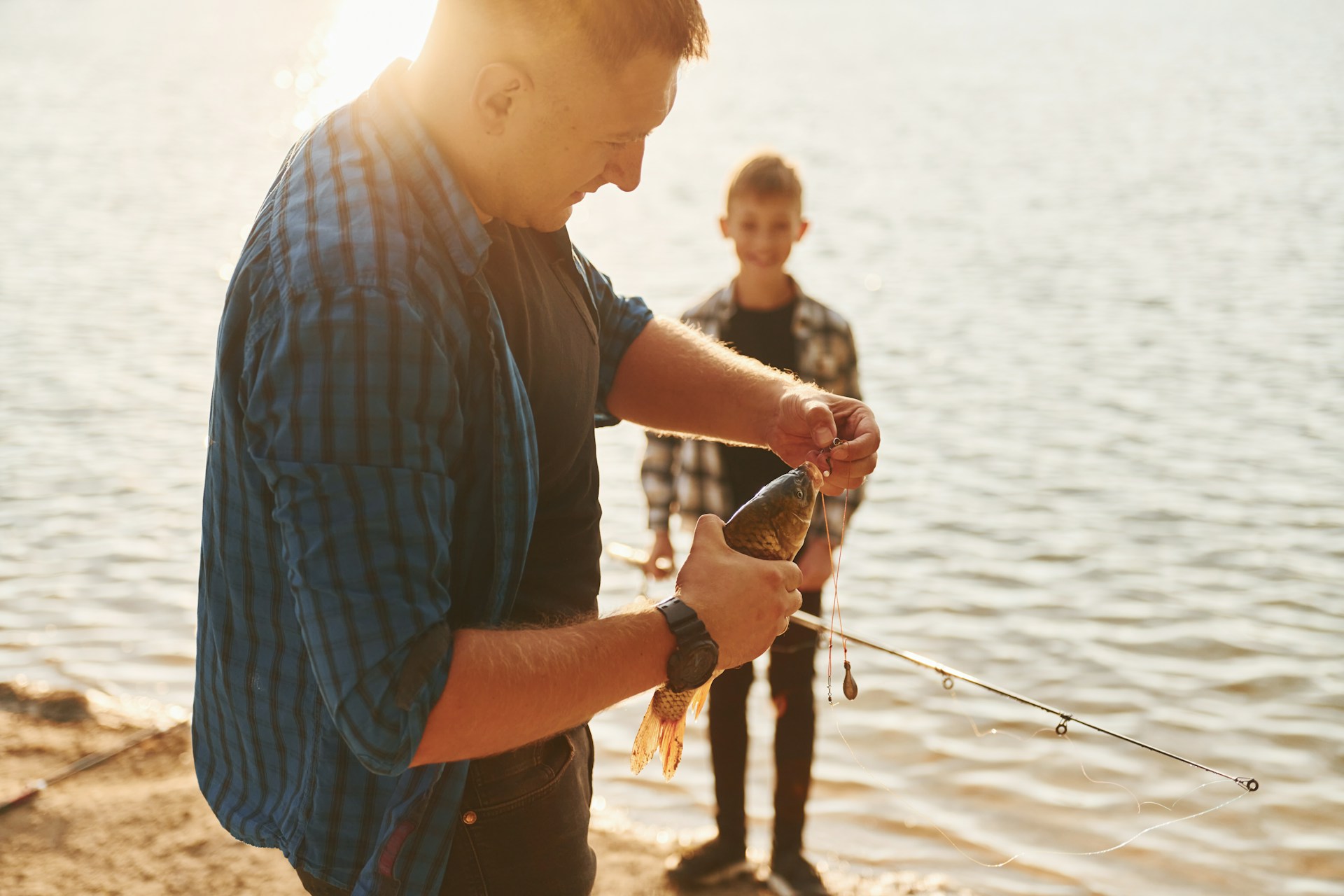Mastering Life Through Fishing Lessons: Patience and Precision on the Water

Spending a day on the water can feel simple at first glance: you cast your line, wait, and hope for a bite. But beneath this serene setting lies a wealth of lessons that go far beyond catching fish. The quiet, the rhythm, and the necessity for attention to detail offer insights into patience, precision, and even personal growth. Fishing lessons are not just about landing a trophy fish—they teach skills and habits that apply to life, work, and relationships.
The Calm That Cultivates Patience
One of the most immediate lessons from fishing is the importance of patience. When you sit on the edge of a boat or the riverbank, line in the water, you quickly realize that rushing does not yield results. Each moment of waiting, each subtle tug on the line, reinforces that success often comes to those who can stay composed. Life mirrors this scenario: projects, relationships, and goals all require time and measured effort.
Fishing lessons emphasize the importance of staying present. Instead of focusing solely on the outcome, you pay attention to your surroundings, observe the water currents, and notice subtle changes in fish behavior. This attentiveness cultivates patience in a natural, unforced way. Over time, these moments of stillness translate to a calmer mindset in daily life, helping you approach challenges without frustration or haste.
Precision in Every Cast
Patience is only part of the story. Fishing lessons also teach precision. Every movement matters—from the angle of your rod to the weight of the lure and the timing of your release. A miscalculated cast can send your bait into the weeds, wasting both effort and time. By focusing on precision, you learn how minor adjustments create significant differences in outcomes.
This focus on accuracy extends beyond fishing. In professional settings, attention to detail can determine the success or failure of a project. In personal life, thoughtful actions and careful planning foster stronger relationships and deepen trust. Fishing lessons reinforce the principle that mastery requires consistent, precise effort. The more you refine your technique, the more reliable your results become, whether on water or off.
Reading the Environment
Another crucial aspect of fishing lessons is learning to read the environment. Observing water temperature, wind patterns, and fish behavior develops keen observational skills. You cannot force fish to bite; you must interpret subtle cues to make informed decisions.
This practice nurtures adaptability. When conditions change, you adjust your strategy. Similarly, in life, adaptability depends on recognizing shifts in circumstances and responding appropriately. Spending a day on the water hones your ability to notice small but meaningful signals and act strategically.
The Rewards of Focused Effort
Fishing lessons also illustrate the rewards of concentrated effort. Success rarely comes from casual participation. Every cast, every observation, and every adjustment builds toward a positive result. Moments of reward—like feeling a tug on your line or finally landing a fish—reinforce that careful effort pays off.
This principle applies in countless life contexts. Career goals, creative endeavors, and personal achievements all demand concentrated attention and deliberate effort. Fishing lessons teach that persistence combined with focus creates lasting rewards. The satisfaction you gain from a day on the water mirrors the pride experienced when hard work in other areas comes to fruition.
Mindfulness in Motion
Time on the water also encourages mindfulness. You immerse yourself in natural sounds, the gentle rocking of the boat, and the simple rhythm of casting and reeling. Fishing lessons cultivate awareness of the present moment, reducing stress and enhancing mental clarity.
Mindfulness is a skill with practical applications. Whether managing a high-pressure job or navigating personal challenges, staying grounded helps maintain balance and clarity in decision-making. Fishing lessons offer a hands-on approach to developing mindfulness while enhancing patience and precision.
Building Problem-Solving Skills
Fishing lessons often place you in situations that require quick thinking and problem-solving. For example, if your bait repeatedly fails to attract fish, you must adjust your approach, try a different lure, or change your location. These small experiments teach you to evaluate options, make informed decisions, and take action with confidence.
The skill of problem-solving gained through fishing lessons translates to real life. Challenges at work, home, or in personal projects benefit from the same mindset. You learn to remain calm under pressure, assess alternatives, and implement effective solutions. The river or lake becomes a training ground for developing resilience and strategic thinking.
Applying Fishing Lessons Beyond the Water
Ultimately, the principles learned through fishing lessons extend far beyond the water. Patience teaches resilience, precision enhances effectiveness, observation improves adaptability, focused effort builds accomplishment, mindfulness supports mental well-being, and problem-solving sharpens critical thinking. These lessons create a foundation for success in multiple areas of life.
Even if you never fish again, the mindset cultivated on a day by the water remains. You become more deliberate in your actions, more aware of your surroundings, and more capable of handling setbacks without frustration. Fishing lessons act as a quiet but powerful teacher, demonstrating that patience and precision lead to both tangible results and personal growth.
A day on the water reminds us that meaningful results rarely come instantly. Whether you are waiting for a fish to bite or a goal to materialize, the core principles remain: patience, precision, observation, focus, mindfulness, and problem-solving. These are the cornerstones of success in life, and fishing lessons provide an enjoyable and practical path to mastering them.
Fishing lessons offer far more than a recreational activity—they provide a blueprint for handling challenges, achieving goals, and cultivating a resilient mindset. By embracing patience and precision, we learn to navigate life with the same careful attention we give to the water, transforming simple experiences into enduring wisdom.
Additional Information
- Blog
- m@hVW@tr